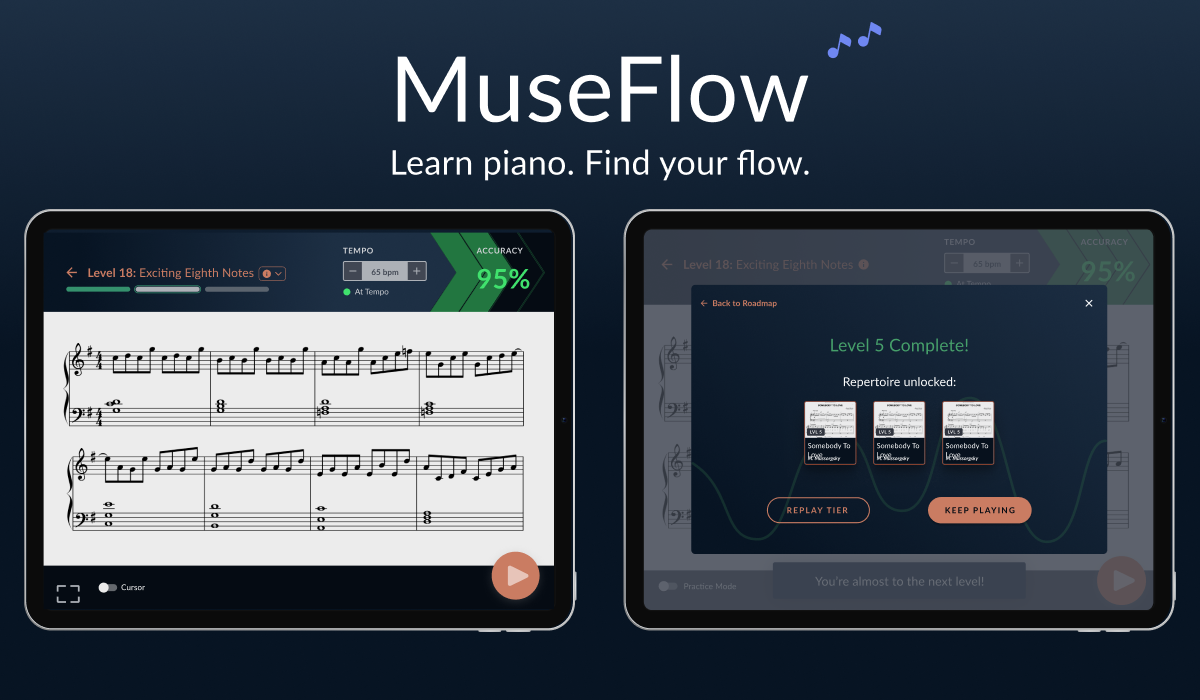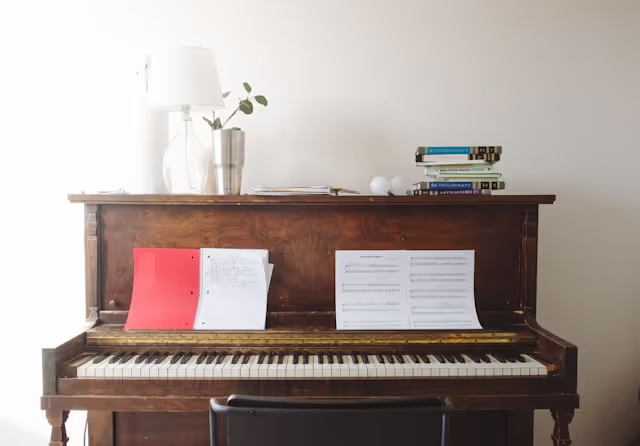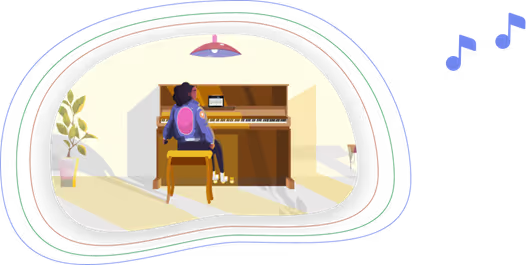Success Stories: How Students Mastered Piano with MuseFlow– A Piano Education App That Delivers Real Results
Looking for real piano learning success stories? MuseFlow isn’t just another piano app… it’s a revolutionary piano education with an app that helps students of all levels master piano with the help of an app that adapts to their progress. But don’t just take our word for it.. hear from real students who’ve transformed their piano skills using MuseFlow.

How MuseFlow Helps Students Succeed: A Few Piano App Testimonials
One of the biggest barriers to learning piano is simply knowing where to begin. Many aspiring musicians feel overwhelmed before they even press a key. Kyle put it best:
“If this was the norm for music education, I firmly believe the landscape would be radically different. Yes, people quit or don’t bother to learn because it can be frustrating, but I actually think the ambiguity of where to begin and how to effectively progress creates this analysis paralysis and discourages people from even trying.”
MuseFlow eliminates that uncertainty with a structured, step-by-step approach that guides learners through the process. For Megan, it provided what traditional lessons never did:
“When I took piano lessons as a child, I just learned how to play songs so I could pass them off. How I wish I had learned how to play notes.”
By shifting the focus to true note-reading and understanding, MuseFlow helps students build the foundational skills they wish they had from the start.
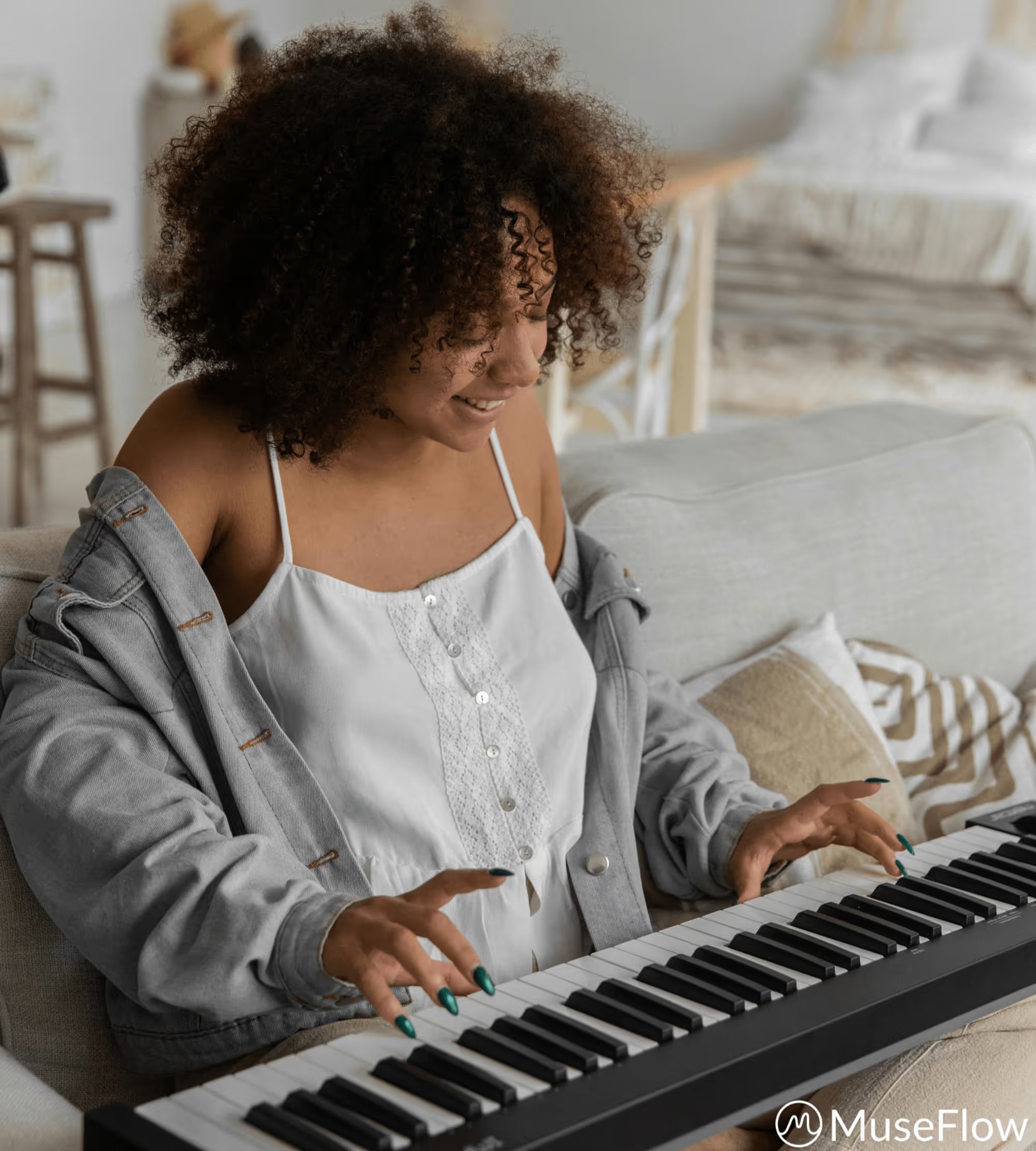
Overcoming Learning Hurdles: How to Master Piano with an App
For many musicians, sight reading has always been a struggle. But MuseFlow’s adaptive approach and real-time feedback have helped students break through their plateaus. Arjuna shared a major breakthrough:
“I don’t think I’ve ever been this good at reading music. It never made sense to me before.”
Katherine echoed that sentiment, noticing her progress with ease:
“Sight reading is getting really easy.”
The moment sight reading clicks is a powerful one. Sharon described how her brain and fingers started working in sync:
“My eyes would see the notes, and my fingers would just go to the right keys on their own, without my brain having to get involved much at all!”
That kind of instinctive playing is exactly what MuseFlow was designed to develop.
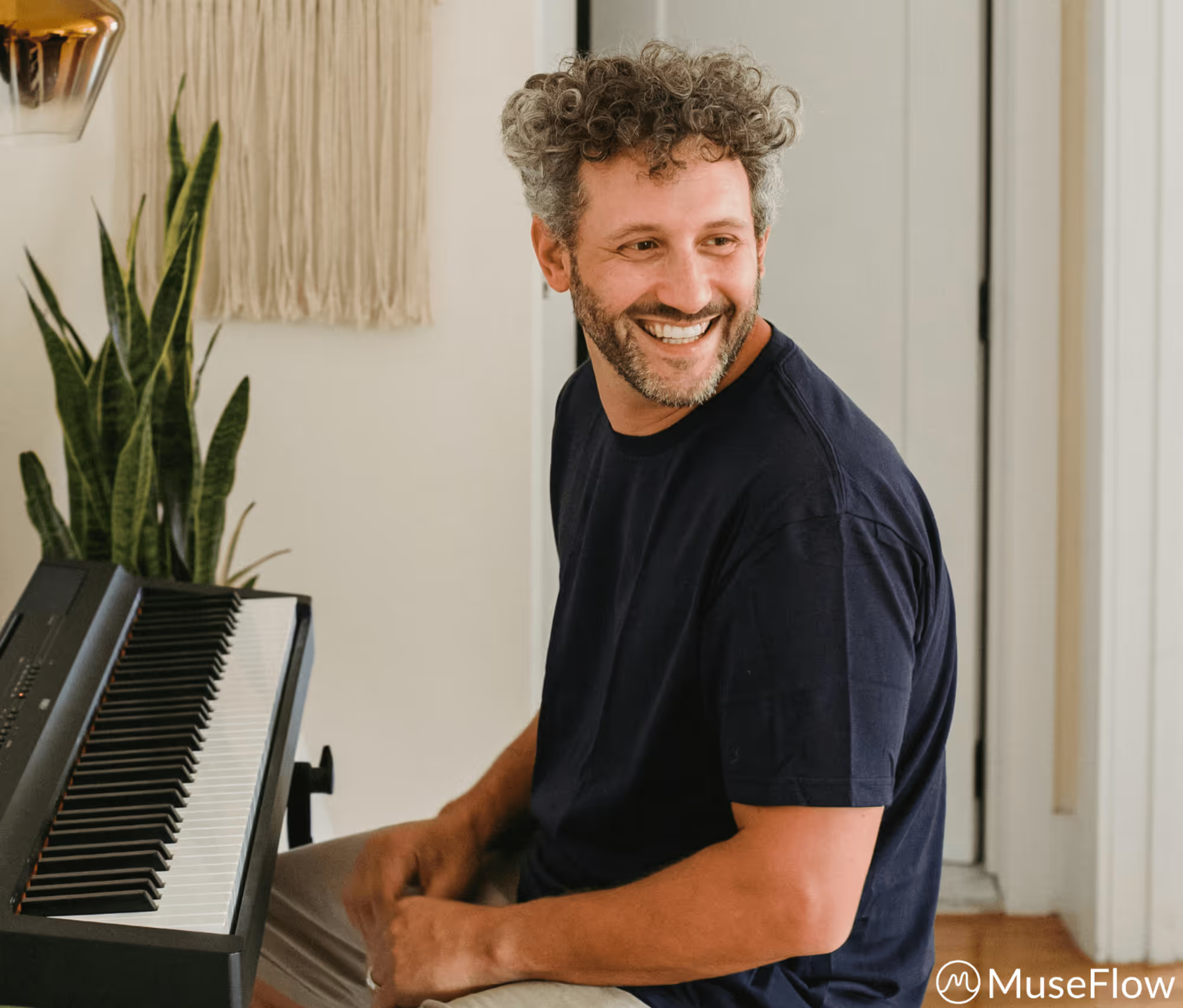
Breaking Through Plateaus: Students’ Piano App Success Stories
One of the standout features of MuseFlow is its unique piano app, using gamification to keep students engaged and striving for more. Dave admitted he was hooked:
“The gamified approach to learning is brilliant, I'm addicted! The app provides instant feedback.”
Similarly, Kalan was motivated by the visual roadmap of progress:
“I want to beat every level so that all the dots turn green.”
Even those who’ve struggled with consistency in the past, like Dennis, found themselves pushing forward:
“Any success I achieve is its own reward. Just having moved to the next higher level, I feel good and surprised that it went so quickly.”
By turning learning into a rewarding experience, MuseFlow keeps students coming back, ensuring their growth over time.

An Intuitive and Seamless Learning Experience: Our Piano Education App Reviews Are In!
Unlike traditional sight reading books or rigid lesson plans, MuseFlow’s interface is designed for smooth, distraction-free learning. Artur compared it to conventional methods and found it superior:
“When compared to traditional methods such as the ‘Improve Your Sight Reading’ book by Paul Harris, which is quite good by the way, your app's interactive way of working and real-time, immediate feedback simply outperforms traditional methods.”
Brandon also appreciated how well the app’s design supports learning:
“The endlessly generated tracks to play along with is a very great design idea.”
When the technology works effortlessly, students can focus entirely on the music. Andre summed it up simply:
“It's a genius idea and great execution. As far as I'm concerned, it’s the best in its class.”
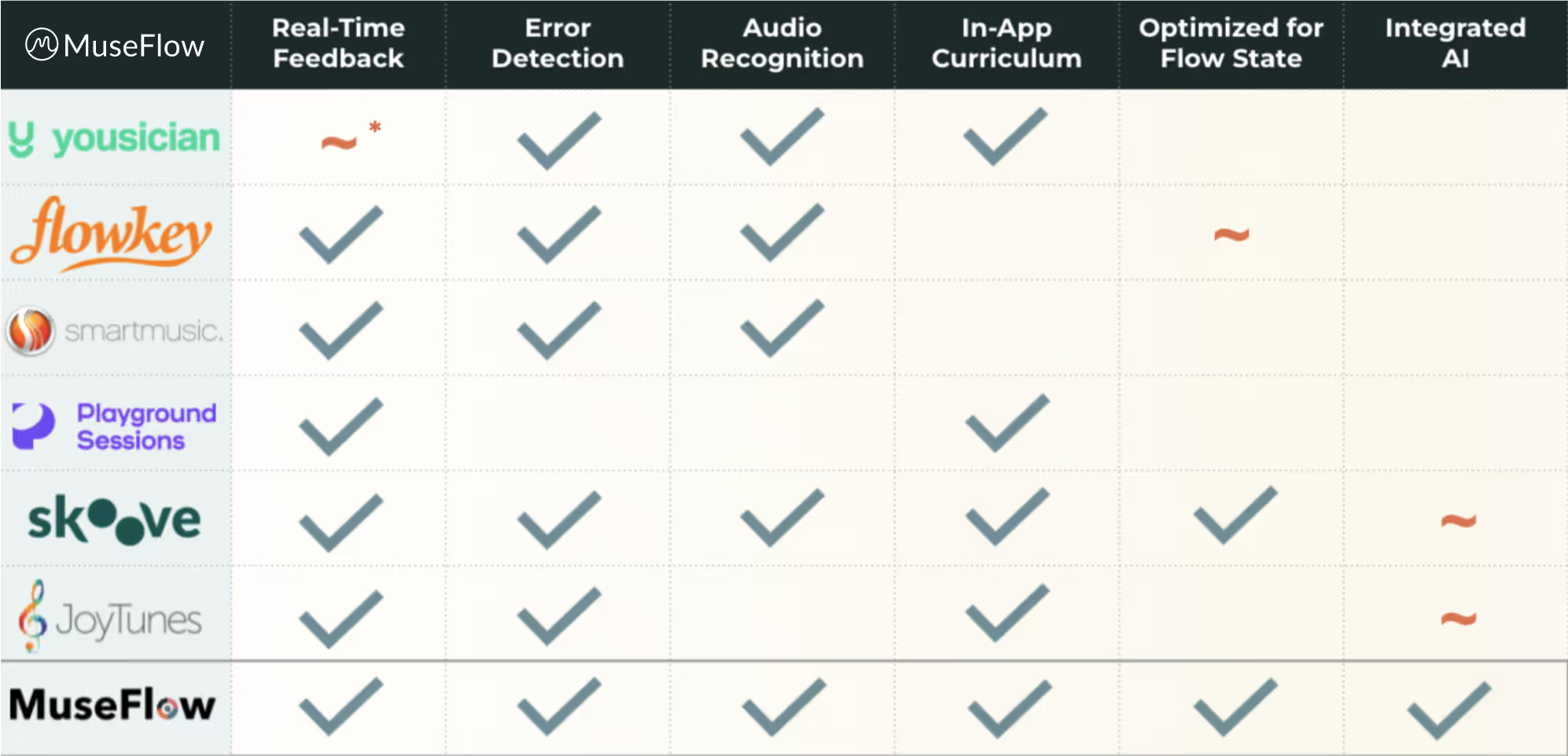
The MuseFlow Effect: Confidence, Skill, and a New Perspective
Perhaps the most inspiring part of these piano learning success stories is how MuseFlow doesn’t just improve piano skills.. it builds confidence and true fluency. For Kyle, it helped erase the self-doubt he carried for years:
“My poor sight reading has been the thorn in my side, the concrete piece of evidence that gives my insecurities justification for screaming that I am not good. And MF is directly training that skill, washing away the remnants of what my insecurities are trying to latch onto. I feel empowered!”
From beginners to seasoned musicians, MuseFlow provides a structured, intuitive, and motivating way to learn. Whether it’s building confidence, overcoming sight reading struggles, or just finding joy in the process, these students prove that mastering piano with an app is possible with the right tools.

Looking for your own piano app with incredible testimonials that provides results? MuseFlow is helping students master piano with their unique music education app like never before. Whether you’re a beginner or looking to refine your sight reading skills, this piano app truly gives students the success they need, and delivers true joy in the process of progressing to proficiency.
Are you ready to start your own success story? Try MuseFlow today and experience the difference for yourself.


.svg)

.jpg)

